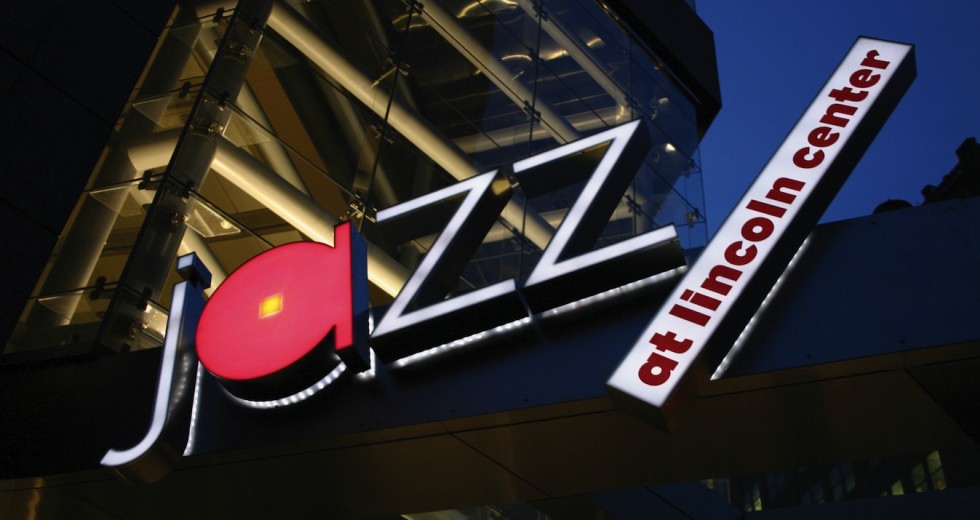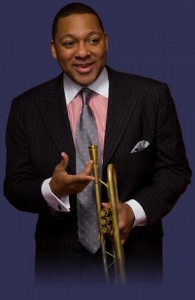
Around World War I, when European composers were casting off the old order and pushing tonality to its breaking point, American musicians of African descent developed their own unique musical language. They called it “jazz.”
Their music did not aspire to be high art, at least not right away. It was played in dance halls and saloons and most any place that people gathered to have a good time. Thanks to the phonograph, radio and movies, jazz became wildly popular and soon spread nationwide with formidable talents, both black and white, emerging from cities, towns and even wide spots in the road.
For a time, jazz became America’s popular music – turn on the radio, and there it was. Eventually, though, some viewed this new music as more than entertainment. They saw it as art, America’s classical music. And since it was art, should it not be presented as such – in a concert hall, as was the case with European music?
That idea had traction. On Jan. 16, 1938, Benny Goodman and his band made their historic appearance in that temple of European classical music, Carnegie Hall. “Wildly successful” does not sum up that concert or its impact. The following August, Benny and company appeared at Ravinia, the summer home of the Chicago Symphony Orchestra, with the same results.
Audiences have been listening to jazz in concert venues ever since. Forty-nine years after those great Swing Era artists’ initial incursions into concert halls and classical-music performance spaces, a summer concert series began in New York City. Like Benny Goodman’s early sojourn into high-art real estate, Classical Jazz at Lincoln Center proved to be wildly successful. Names changed, and in 1991, Jazz at Lincoln Center became an official division of that venue.
“The mission of Jazz at Lincoln Center is to entertain, enrich and expand a global community for Jazz through performance, education and advocacy” are the first words of the organization’s mission statement. This season, Symphony Center Presents celebrates 20 years of Jazz at Lincoln Center coming to the Windy City. (The group returns for its annual residency, anchored by a concert March 28 at Symphony Center.)
“We started the jazz series here in 1994,” says Jim Fahey, director of programming for Symphony Center Presents. “Jazz at Lincoln Center was with us for that very first season, and they’ve been coming back ever since.”
 A quick perusal of JALC’s history here reveals a staggering depth and breadth of programming: Duke Ellington, Louis Armstrong and so many other jazz giants have been the subjects of JALC explorations. There also have been numerous collaborations with the CSO: Grieg’s Peer Gynt Suite with Sir Andrew Davis conducting the CSO, paired with the Duke Ellington/Billy Strayhorn version offered by the Jazz at Lincoln Center Orchestra. There was even a coupling of Stravinsky’s The Soldier’s Tale with Wynton Marsalis’ A Fiddler’s Tale featuring the Chamber Music Society of Lincoln Center and the JALC Orchestra.
A quick perusal of JALC’s history here reveals a staggering depth and breadth of programming: Duke Ellington, Louis Armstrong and so many other jazz giants have been the subjects of JALC explorations. There also have been numerous collaborations with the CSO: Grieg’s Peer Gynt Suite with Sir Andrew Davis conducting the CSO, paired with the Duke Ellington/Billy Strayhorn version offered by the Jazz at Lincoln Center Orchestra. There was even a coupling of Stravinsky’s The Soldier’s Tale with Wynton Marsalis’ A Fiddler’s Tale featuring the Chamber Music Society of Lincoln Center and the JALC Orchestra.
Composer, trumpeter and major force in American musical life Wynton Marsalis (inset photo, right) is managing and artistic director of Jazz at Lincoln Center. “Marsalis holds an outsize position in American musical culture,” the Chicago Tribune’s Howard Reich has written. Fahey, who has worked closely with Marsalis over the past two decades, has his favorite JALC moments. “Every concert I’ve heard of theirs is great but looking back through their history here I can say that their performance of Blood on the Fields was a real highlight and All Rise was amazing, too.”
Marsalis, the composer of both works, was awarded the 1997 Pulitzer Prize for Blood on the Fields, a story of slavery and much more, a three-hour-long oratorio in which Marsalis draws on all the idioms of African-American musical culture. “Blood on the Fields details in music what I feel it takes to achieve soul: the willingness to address adversity with elegance,” wrote music and cultural critic Stanley Crouch.
While the programs have been impressive, the goal of JALC’s Chicago visits was to do more than simply perform concerts. “In the midst of extended periods here we started doing residencies with them,” Fahey says. “We’d connect these very accomplished jazz artists with students. Over the years, Wynton has done master classes and lecture demonstrations with all kinds of different groups, and individual members of JALC have gone out to work with high school bands in the city and suburbs.”
JALC’s education programs are many but they all have the same objective: to instill in young people a love and passion for this uniquely American art form. “This is an amazing group of musicians and an amazing group of artists who we’re very proud of,” Fahey says. “We’ve developed a close relationship, having presented them so many times over the past two decades. I hope that relationship continues for years to come.”
Chicago-based writer Jack Zimmerman has authored a couple of novels, countless newspaper columns and was the 2012 recipient of the Helen Coburn Meier and Tim Meier Arts Achievement Award. He currently serves as subscriber relations manager for Lyric Opera of Chicago.